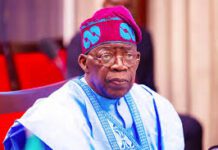Economists have advised the present administration to consolidate on the gains of independence and democracy to take the nation out of economic difficulties.
Mr Tunji Adepeju, a consultant and Dr Olumuyiwa Alaba, a policy economist, stated this in separate interviews with the News Agency of Nigeria (NAN) in Ibadan on Wednesday.
Adepeju stated that though “it seems that the country’s foundation was wrongly laid since gaining independence but the diversity of the country can be harnessed to take it to enviable heights’’.
He identified military rule as one of the setbacks the country had, noting that when the nation had surplus it was unfortunate that not many developments of lasting values were recorded.
“Of course, I won’t blame the current government for resorting to borrowing from institutional lenders and even from the public because that is the foundation that other governments have laid for us.
“We as a people don’t want to pay taxes and the revenue of the government will come from the internally generated revenue, among other sources.
“In UK, people pay tax and you can’t escape it because they have a good database so everything is almost automated and computerised.
“Here in Nigeria, people come into the world without record and they die without record.
“People move from one place to another without record and when you also look at the way we are managing ourselves, I think over time, we have been eating with our ten fingers.
“When things were smooth we squandered what we had. Remember that we had the Excess Crude Oil Account, the Sovereign Trust Wealth but at a point in time, we are where we are now.
Adepeju said to attain sustainability for Nigeria and solve problems confronting the nation, the present administration must consolidate on the gains it had made so far.
“In a situation where we spent a large percentage of our revenue on recurrent expenses such as salaries and personnel emoluments is not good enough, there must be a change,’’ he said.
He commended the efforts of the Tertiary Education Trust Fund (TETFund) for supporting tertiary education.
“We need to upgrade our public tertiary institutions to the extent that the students studying Computer Science would have access to computers.
“Thosestudying Mechanical Engineering would have access to the equipment; and if you are a scientist, the laboratory would be upgraded to meet the 21st century standards.
“Concerning the state of the health sector, this ongoing pandemic has taught us lessons and we should apply the lessons learnt from COVID-19 pandemic to make headway.
“With all that the government is doing, more should be done to provide necessary infrastructure and facilities for the hospitals and address other health concerns.
“On social interventions; there are quite a lot of things that the government is doing. It needs to do more by trying to alleviate poverty among the people.
“Agriculture is so important that we cannot do without it. It has to be done in a way that people will be encouraged to go back to and the country will attain food sufficiency.
“Look at what would have happened if rice importation had not been banned much earlier and with the pandemic, people were not ready to ship anything out of Europe and the Far East into Nigeria, a lot of us would have starved to death.
“So, I think the government would have to improve on this. The main issue now is collaboration between the government at the national level and the states down to the local government levels.
Adepeju emphasised the need to go into value addition to expand the shelf life of our farm produce.
However, Dr Olumuyiwa Alaba, observed that looking at the 9-Point Agenda of President Muhammadu Buhari, the government would need to do more to implement its policies effectively.
“The administration was able to recover Nigeria from the recession of 2015.
“However, it has not succeeded in building a thriving economy.
“Businesses still struggle before COVID-19 pandemic, it only aggravated the situation.
“So the government must look into this in building a thriving and sustainable economy.
“The strongest thing that the government can do is to build the sectors that would sustain the naira in the face of dwindling oil prices,’’ he said.
He said that some good efforts had gone into rail sector development as the “road infrastructure is degenerating in many parts of the country.
“To expand business growth, entrepreneurship and industrialisation; the government has recorded some element of success in business environment reform.
“More interventions that would translate into progress for the country are needed to be implemented.’’(NAN)




